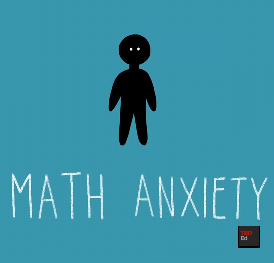Researcher: Dr. Orly Rubinsten
Background
Generalized Anxiety Disorder (GAD) is a prevalent disorder, characterized by persistent worrying, physical symptoms, and tension. Current treatments, drug therapies (e.g., selective serotonin reuptake inhibitors, SSRI) and cognitive behavioral therapy (CBT), each have drawbacks. Two novel treatments, Attention Bias Modification Treatment (ABMT) and neurofeedback (NF), show promise, but have yielded inconsistent results. ABMT is a cognitive treatment aimed at helping patients shift their attention away from threat stimuli. NF is an implicit training of brain function via real-time feedback, based on neural signals while watching a movie or hearing music, which treats the faulty brain activity associated with conditions such as anxiety. To date no effective long-term cure or prevention has been found for the disease.
According to the Anxiety and Depression Association of America, GAD affects 6.8 million adults, or 3.1% of the U.S. population, in any given year. Women are twice as likely to be affected by the disorder, which develops gradually, most commonly between childhood and middle age.
Novel and Effective Clinical Practice for GAD treatment
Dr. Orly Rubinstein, head of the University of Haifa’s Language and Numbers Laboratory, is introducing a novel approach in clinical practice to treat GAD, using machine-learning algorithms in combination with cognitive psychology and neurophysiological methods.
By implementing ABMT to modify threat-related attention bias in anxiety and simultaneously providing visual neurofeedback, the participant is encouraged to counter deficient brain patterns. This novel neurocognitive treatment (NCT) will thereby enable performance of cognitive tasks while receiving neurofeedback.
The NCT is based on principals of machine learning (ML), a method of data analysis that promotes quick and accurate understanding of big data leading to predications for future data, and brain-computer interface (BCI), that acquires and analyzes brain signals to create a high-bandwidth communication channel in real time between the human brain and the computer.
Research Status
Dr. Rubinsten’s NCT paradigm is being carefully designed, by systematically manipulating critical parameters such as mental task content, feedback type, training duration, etc. Machine-learning principals are being applied to recognize individual behavior and brain patterns and the supervised learning algorithm will provide real-time feedback.
The research team expects this to method to allow the participant to achieve the behavioral and neural goals that they set. The NCT will be the first step in the development of a platform that will consist of various cognitive tasks combined with NF protocols.
Since no currently existing product enables performance of cognitive tasks while receiving NF, employing both treatments simultaneously has potential scientific, therapeutic and commercial value. NCT will potentially enable both clinicians and scientists to use any cognitive task under NF, potentially opening the doors for future treatments for many mental disorders, all under the frame of personalized medicine. BCI could also help with diagnosis as classification algorithms will be applied. This platform will be the first NF treatment to implement co-adaptation, where machine and patient adapt to one another.
IP Status
US Provisional Patent Application ̶ System and method for treatment of mental disorder


